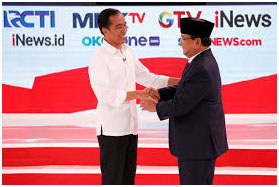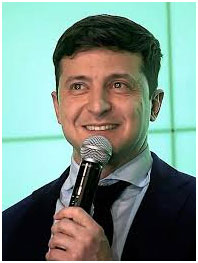“When GOD gets Bloodstained......Easter Bombings in the Island Nation”
Mrityunjaya Dubey
.jpg)
Image courtesy: ANI and BBC news
On 21st April, when the world was praying and cherishing for the rejuvenation of the Christ and his incarnation on the Earth...the ugliest barbaric act in the Island nation of Sri Lanka withheld the moving world for a while. It was on the day of Easter, people happily participating in the holy communions in the Churches of the capital city of Colombo suddenly a suicide attacker and a group of terrorist bombs the holy site. The culprits involved in the mass killing have their roots in the al-Shabaab- a terrorist outfit aiming at such mass killing and violent atrocities across the globe. The official Sri Lankan government records points to more than 259 people lost their lives in such brutality. Does the question now arise what motivated the attackers? the analysis of such events in the West including the US, Europe and also Africa and Asia in recent times indicates the shreds of evidence of the radicalization but with contradictory inferences. The motive force behind the attack might be the lust for some sort of "economic benefit", a sort of "political gains" or maybe simply the objective of spreading the psychological fear and its publicity.
Meanwhile, number of studies have been conducted by leading research institutes from time to time amidst these acts of violence some pointing that the radicalization leads to 27 per cent of respondents joining al-Shabaab in Somalia for economic reasons, other shows some 15 per cent get radicalized by religious reasons, while 13 per cent were forced to join the group. However, so far none of the studies has been successful in unfolding the mystery of the Sri Lankan attacks. In Sri Lanka, two suicide bombers who carried out the act were found to be hailing from the wealthy family of copper mining and spice trade capitalist. The descendants were "well educated", one graduated from England while the other from Australia. Even, the cosmic glue of diverse religious and linguistic groups in Sri Lanka and their assimilation into the ethos can’t explain the attack. Thus, the attack hints to the old differences between the Islamic and the Christian world on one end, while on the other end the similarity between Islamic radicalization and communist revolution. The attack resulting from the fervent proselytization of some ill-advised folks gives the reason why the extremist chose to bomb Christians. Their numerical weakness would not have any big backlash as bombing the Buddhist or Sinhalese group which have triggered the Muslims in past. The generalization arrived at shows the impressions of getting the larger publicity worldwide.
To this end, Prime Minister Wickremesinghe in his address to the nation condemned and acknowledged the barbaric act in the Sri Lankan soil. The government of Sri Lanka seems to take collective responsibility of failing to provide security to its citizens, reflected the PM’s statements. The government of Sri Lanka now needs to take concrete measures to combat terror effectively and provide security to its citizens.
INDONESIAN GENERAL ELECTIONS
Ishita Singh

Image courtesy: Brookings
In a historic turn of events, on April 17, 2019 Indonesia successfully held its presidential, parliamentary and regional elections simultaneously on the same day with around two lakh forty-five thousand candidates contesting for twenty thousand local and national seats and one hundred and ninety two million eligible voters. Given the scale of the election and the logistical complexity involved, scholars have termed it as one of the most complicated one-day election in the history of the world. The last Indonesian general election held in 2014 had Joko Widodo(or Jokowi) and former general Prabowo Subianto contesting in the Presidential election with Jokowi coming to power.
Once again history repeated itself in presidential election of 2019 in the archipelagic state with a face-off between Jokowi and former general Prabowo Subianto and a clean sweep by Jokowi’s Indonesian Democratic Party of Struggle (PDI-P) coalition with fifty-five percent votes as against Subianto’s party coalition. With this victory, Jokowi is gearing up for his second term as the President of the world’s third largest democracy.
Although the government of the state essentially remains the same, Jokowi’s running man (i.e. the candidate for Vice-President) has undergone a change from Muhammad Jusuf Kalla to Ma’ruf Amin, an influential and eminent muslim figure in Indonesia. This can be interpreted as Jokowi’s attempt towards securing and sustaining votes from the muslim vote bank given that they constitute more than eighty-seven percent of the state’s population. The Jokowi government had initially secured power through its fight against corruption and poverty. In the last five years the state has able to direct itself towards the path of development. However, on the other hand, Indonesia has also witnessed a tilt towards conservatism, a prominent instance of it being the two year imprisonment of Jakarta’s former governor, Basuki Tjahaja Purnama (or Ahok) on charge of Blasphemy. It is too early to comment on the success and policies of the new government and therefore there is a need to keenly observe the future trajectory of Indonesia under the re-elected Jokowi government.
Ukrainian Presidential Elections
Daneesh Sethna

Image courtesy: Wikimedia Commons
Volodymyr Zelenskiy, an actor and comedian with no political experience other than playing the role of president in a TV series, has won a landslide victory in Ukraine’s presidential election
41-year-old Zelenskiy had won 73.4% of the vote, compared to Poroshenko’s 24.4%. There was a widespread mood in Ukraine of alienation from politicians and the political class with Mr Zelenskiy standing out apart from the rest of the candidates as non-corrupt and a change from the incumbency. Widespread corruption within the political class has plagued Ukraine for decades and is largely responsible for the poor socio-economic shape in which the country finds itself today. Not only is Ukraine the poorest country in Europe, as per International Monetary Fund (IMF) rankings, it is also one of the most corrupt, according to Transparency International’s Corruption Perceptions Index.
The incumbent, Petro Poroshenko conceded defeat on Sunday evening before results started coming in.
Comedian-turned-politician Volodymyr Zelensky announced parliamentary elections during his swearing in as Ukraine’s new President on Monday.
The President also stated that ending the conflict with Russian-backed rebels in the East would be his top priority. The big question mark over the possible evolution of Ukrainian-Russian relations under Zelensky’s presidency is that, Zelensky’s non-confrontational approach towards Russia so far, as opposed to Poroshenko’s belligerent posture, might provide room for at least a partial normalisation.